.
.

North of Oxford is open for submissions of poetry, book reviews and essays. Please feel free to send for consideration of publication. Follow the guidelines on our about page: https://northofoxford.wordpress.com/about/
.
.
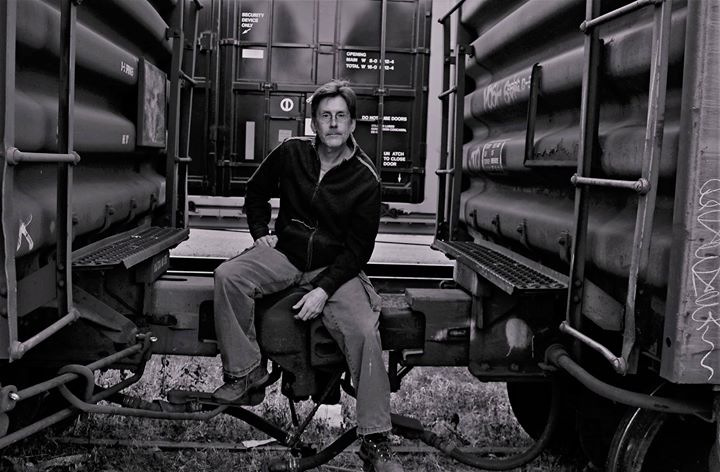 Carl Kaucher of Temple, Pa has published three books of poetry, Sideways Blues – Irish Mountain and beyond. Postpoemed and his latest, Peripheral Debris. He explores his experiences wandering urban spaces near his home and throughout Pennsylvania. The work reflects the amazing diversity of events that are happening all around us if only we slow down long enough to observe. Through his photography and writing, Carl exposes the miraculous beauty of the ordinary. He is photographing the overlooked places and documenting the chance occurrences that happen to him and by doing so gives us the opportunity to reflect upon those similar things happening in our lives. https://www.facebook.com/CarlKaucher/
Carl Kaucher of Temple, Pa has published three books of poetry, Sideways Blues – Irish Mountain and beyond. Postpoemed and his latest, Peripheral Debris. He explores his experiences wandering urban spaces near his home and throughout Pennsylvania. The work reflects the amazing diversity of events that are happening all around us if only we slow down long enough to observe. Through his photography and writing, Carl exposes the miraculous beauty of the ordinary. He is photographing the overlooked places and documenting the chance occurrences that happen to him and by doing so gives us the opportunity to reflect upon those similar things happening in our lives. https://www.facebook.com/CarlKaucher/
Interview by g emil reutter
GER: How did growing up in Reading influence your poetry and method of writing?
CK: Reading Pennsylvania is situated in a valley bordered by the Schuylkill river, Neversink mountain and Mount Penn. Where I grew up on the northeast side of the city, I was just a few blocks from the base of Mount Penn which has large tracts of undeveloped woodland. So as a youth I was exposed to both an urban and natural environment and as with most youth I was outdoors all the time. On weeknights I was playing in the back alleys, streets, schoolyard lots and urban playgrounds. On weekends my friends and I were either downtown or wandering in the woods of Mount Penn. We were always exploring and as we grew older the wandering went further from home.
As a young adult I had various apartments around Reading. I worked at a factory in downtown Reading but never earned enough money to really afford or want a car. I walked. I walked a lot. Reading is a small city so public transit was limited to buses and the buses stopped running fairly early. I walked at night. I found a lot of places in the various neighborhoods I lived to explore, old rail yards, warehouses, out of the way places. I was always trying to find different ways to get from point A to B. At the pace of a walk the world becomes more intimate.
One apartment I had was across the street from the old Reading railroad yards. I would sometimes meet friends there at night, we would drink beers and I would shout my poems to the moon or passing diesels. I loved being in an urban environment. Sometimes I would walk to the edge of the south side of town with a friend and trek out the railroad tracks to the backside of Neversink Mountain, camp all weekend and build huge roaring fires with railroad ties, drink beers chilled in a little spring we found. I also loved the woodland spaces.
When I got older, after the kids were raised and the desire for career advancement fled I picked up where I left off only I began extending my journeys outward into Pennsylvania at large. Trying to rekindle my creative self, I started writing more about my experiences wandering. I had written for many years but when I made the connection between writing and the experiential part of my life things started to coalesce. When my brother bought me a camera for Christmas one year, I started to document these journeys photographically. Both of these crafts I still am trying to develop and perfect
GER: What type of jobs have you worked?
CK: I started my working career in 1977 with a summer job painting dorm rooms at Albright College in Reading. Since that time I have worked in various retail and industrial jobs and until this day I still work in industry at a battery manufacturer as a Quality Inspector. My favorite job was working in a small hardware store for a couple of years. I learned so much about various hardware, lawn and garden and home repair wares especially from the various contractors we served. It was an old building with 4 floors jam packed full of stuff We sold everything from Kerosine heaters to seed potatoes. You had to learn and learn quick in order to be able to help the customers. It was the perfect job for a young man. I was the master glass cutter.
Another noteworthy job I had as a youth was working on the grounds crew at Albright College. It was during this time I started writing, I believe I was 19. My sister was an art major at the school so through her I met a lot of fantastically creative and interesting people. I started writing in part to try and impress some of the girls I was hanging around. I was not that good at writing. I was not that successful with the ladies either. One of my bosses there gave me the nickname Sideways and it stuck.
My job in a factory provides the inspiration I need to do something more fulfilling with my life away from work. I was never really career oriented but I am a blue collar writer and proud of it. From the outside it may seem that those who work in factories are cut from the same mold but I am blessed to be working with a lot of interesting people. I work with folks from Columbia, Honduras, the Dominican Republic, Croatia and wow do I learn from them. Even the people from various regions in Pennsylvania have so many different interests and perspectives. I work with poets, musicians, photographers, hunters, farmers, entrepreneurs, people with skills I could never master. I learn from them all and respect them deeply. There is nothing common about the common man.
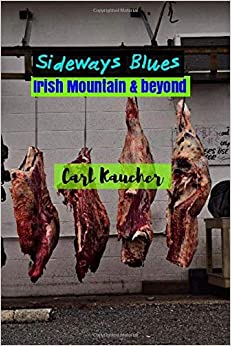
GER: What influence did Kerouac’s San Francisco Blues, Mexico Blues and Book of Blues have on your own volume, Sideway Blues: Irish Mountain and Beyond and how do they differ?
CK: Sideways Blues, was stylistically influenced by Kerouac’s concept of the Blues which he defines in the front sleeve of his book Some of the Dharma. He says, ” A blues is a complete poem written filling in one notebook page, of small or medium size, usually 15 to 25 lines, known as a Chorus,…” Kerouac insisted upon spontaneity and little to no revision. That being said, I am not a huge fan of most of his poetry per se’ because of that lack of revision. He certainly hits the mark on several pieces but most come across as conversational, and lacking of profundity or depth. I am much more a fan of his prose work.
We part ways on revision. I revisit my poems after writing them and revise. Upon a 2nd, third or forth reading I am able to develop the lines and imagery so that it more closely resembles the experience that I felt at the time of writing and also to present things in a way that might be more palatable for the reader. However, when revising I do try to keep the original intensity and vibration that I felt at the time of writing. I also allow myself the ability to extend the poem beyond a notebook page but I do like the concept of sticking to about a page because it forces you to develop each line more succinctly instead of getting too wordy.
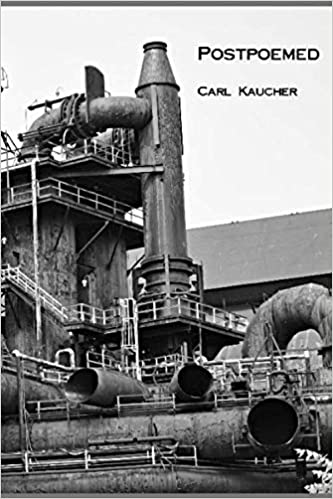
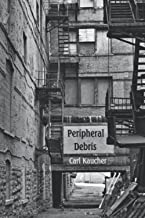
GER: Your collections, Postpoemed and Peripheral Debris document through poetry and photography the decline of industry in towns, boroughs and cities in Pennsylvania. What effect did the geography and people you encountered have on you?
CK: The other thing that inspired me to continue my explorations was the discovery of the concept of Psychogeography which is a sort of pseudo-science dealing with the effects of environment on the behavior and emotions of individuals. It is also very much a literary and artistic movement as well and has a long history. The premise is to quiet the mind and open up to the surrounding environment to recognize its impacts upon your thoughts and feelings and then document the results through writing or photography. Walking can be meditative. With each step you let go of cares and worries and open up to the present, the longer you walk the easier it becomes. As you walk you merge more and more into the surroundings and become less noticed by others. Sometimes I will just sit somewhere and observe. Whether walking or sitting I take notes of happenings, thoughts and feelings. Usually within the next day or so after the experience something poetic resonates within me and I revisit the notes and write it out. The result is not always a success but sometimes works out quite well and those are the works I have published so far.
In the process I have gained a greater appreciation of the people and places I have been. Everywhere everyone is just leading their ordinary lives the best that they can. As an observer, I consider myself lucky to have witnessed all the chance encounters, all the events unfolding. Had I not been at a particular place at a particular time I would not have seen what I saw. Everything unfolds in the present moment and it is the present moment everywhere so depending on where you are that is what you know. Just sitting at home trying to discern reality from the news or from the internet is a half truth at best. I think the truth is what lies before your eyes, take that and fit it into the larger context of what you read or hear.
Pennsylvania is a beautiful place, so many winding roads though cities and towns past forested mountains and farms. The people I have encountered are distinctly interesting manifestations of that environment. Those I have met along the way are always surprising in their diversity. I have learned to never trust first impressions as during conversation I am generally surprised to find out I was wrong. The architecture I encounter will never be duplicated. There is much historical beauty throughout the state. Even the decay has a certain beauty. The streets of early 20th century row homes I walk down will never be duplicated and may not even be replicated anywhere else outside of the northeastern United States. There is something quite unique about a small Pennsylvania town. There is much to find.
GER: What other poets have influenced you and do you have any you return time and again?
CK: The work that I am currently producing is directly influenced by the beat movement, spontaneous rhythmic free verse. So Allen Ginsberg, Jack Kerouac, Gregory Corso, Lawrence Ferlinghetti, William S. Burroughs of course. Gil Scott Heron, Amiri Baraka, Richard Brautigan, Maggie Estep, Lydia Lunch, Lorri Jackson, Captain Beefheart ( Don Glen Vliet ), Patti Smith are also great poets as well and on and on. I am greatly in awe of the talents of so many other poets too numerous to mention. I have also met a lot of lesser known writers who have inspired me. Strangely enough though, it is the work of William Blake that over the years I have returned to time and again. The marriage of Heaven and Hell has been read many times.
I am also drawn to literature, philosophy, eastern religious thought and well crafted prose. Another book I return to often, so dog eared, battered and torn, is Fernando Pessoa’s The Book of Disquiet – A Factless Autobiography. Pessoa’s prose is flawless. The narrator, living his entire existence in Lisbon Portugal ( and mainly one street in Lisbon) opens up a boundless universe of imaginative thought and observation. It is the one book, along with a survival guide, that I take with me into the woods when the bombs start to drop and the shit goes down.
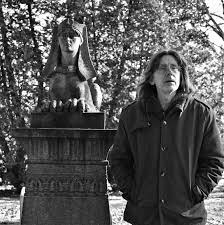
GER: Are you familiar with Martin J. Desht’s Photosonata?
CK: I was not familiar with Desht’s work but I am certain I will be sometime soon. From what I can glean off the internet it very much looks like his photography is similar in nature to mine. It seems like he had explored some of the same areas that I have been exploring. Perhaps it would be interesting to try and revisit and photograph the places he has and see how they have changed. Thank you for bringing him to my attention.
GER: Do you believe lost industrial jobs can return to Pennsylvania and if not, will the wealthy continue its efforts to eliminate the middle class?
CK: No, nor do I think they should. The past cannot be duplicated. The future and any prosperity it may bring to the depressed regions of Pennsylvania will be unique to its time. Manufacturing will be a part of this for sure but it will be manufacturing producing what is needed for the times they are needed in. Yes it is always the people near the bottom that are most affected but humans are adaptable and must adapt to the current situation. Some of these towns will survive but there will be many that continue to crumble into dust. To try and hold on to the dream of returning to the glory days of the past is only keeping us from progressing into what we could be tomorrow. I used to think it as essential for towns to hold on to all those beautiful old buildings of historical significance but if they are holding us back from becoming more prosperous then they too must go.
Overall, I do see us by necessity having to return to a more urban environment, a more community oriented environment. I see the revitalization of small cities taking place everywhere I go. Places like Phoenixville, Lancaster, Doylestown, Stroudsburg and closer to my home, West Reading are becoming attractive to live in again. Perhaps as more people work from home some of those depressed towns will become more attractive because the cost of living will be less. Certainly, during any revitalization there must be efforts made to keep affordable housing. But, this notion of escaping further and further away from each other is unsustainable. There are only so many places to go. The car culture and the blandness of suburbia is destroying us more than any loss of industry. The pervasive self similar, scale invariant strip mall culture of the WaWa – Wal-mart world is culturally destructive and environmentally unsound. However, this is a huge topic and could be the subject of many a book so I will stop there and reserve the right to be wrong about any of it.
GER: Was there a transition between living in Reading and now living in Temple?
CK: I have a love/ hate relationship with the Reading area. I very often wonder where I would be had I lived in other places also. Yet, I would not be achieving what I currently am if I had gone elsewhere. I suppose it is pointless to even speculate what my life would be. I will just try and be appreciative of what has befallen me and trust the universe to take me where it will.
Temple is on the northeastern edge of the greater Reading area so the transition was not that great. I am still in an urban environment where the sidewalks still run and connect me to the city itself. Temple is in Muhlenberg Township which is adjacent to Reading and is very much a fast food, Dollar Mart, strip mall hustle and bustle boom. Temple itself is an old town at the end of a trolly line that was just enveloped by sprawl. Overlooking Temple is the hump/ pseudo mountain called Irish Mountain and it is where my poetic journey began in earnest. It is also the focus of my first book Sideways Blues. I have found many places nearby to escape to on foot but everywhere I go I can turn the corner and look northeast and there’s that dam Irish Mountain glaring down at me saying – where do you think you are going now?
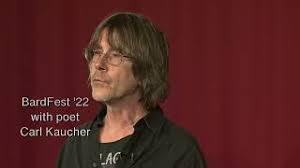
GER: How is the poetry scene in Reading?
CK: Reading has had a pretty stable poetry community since the early 1990’s under the moniker of “Berks Bards”. The “Bards” are part of the artistic establishment and tend to be a bit academic, but the group has afforded me many opportunities over the years so I am thankful for them. Under the leadership of its original founders it was more of a county-wide group involving many communities, now it pretty much resides in Reading and is intertwined with the local art venue at the Goggle Works. The Goggle Works is an old factory that was refurbished to now be an arts and craft center with artist lofts for rent and workshops etc. It is a good thing overall but is a self contained island of art with not many places to go outside of it. Ironically, it is the old factory where I used to work at in my young adulthood when I was tromping around the streets. I believe there is a couple of other groups that are around but are more “workshop” oriented and I am not a “workshop” poet but I’m guessing they do good things.
Reading itself has become a largely Hispanic community which is vibrant and diverse and does seem to have it’s own growing creative community. I have only recently discovered this but have long sensed it. Unlike a large city such as Philadelphia if one wants to broaden their scope and reach you have to travel to other small cities to expand the circle. I have found very vibrant poetic communities in Lancaster, York and Harrisburg as well. I know of groups in Allentown, Bethlehem, Scranton and Chester County also so poetry is very much alive in Eastern Pennsylvania. I also have found a great circle of friends and supporters in Woodbridge N.J as well.
GER: What current literary projects are you developing?
CK: Like in the Lawrence Ferlinghetti Poem I am Waiting, currently I am waiting for a rebirth of wonder which is slowly beginning to emerge. While I am still writing experiential poems of place, I am delving more and more into some longer prose pieces which are still experiential in nature but incorporate mental traveling as well, stream of thought. I am most interested with the juxtaposition of loosely related images that play upon each other to form a more implied narrative. I have done this in the past with some success in longer spontaneous pieces I have written but I think I would like to utilize this in some shorter poems. I have just been reading some and love his poems Night Highway 99 and Three Worlds, Three Realms, Six Roads in which stand alone lines juxtaposed take the reader on a journey without much in the way of narrative. It all comes down to a well crafted line, I think. I also like the short numbered aphoristic like chapters found in Fernando Pessoa’s work or Kerouac’s Desolation Angels or even Fredrich Nietzsche’s Human, All Too -Human or Blake’s Marriage of Heaven and Hell. So, I am continuing the process of developing and experimenting with my writing.
As with my previous three books, at some point it manifests that I have a body of work that fits together well and then I seek to publish. If I do publish again, I think it will be an E-book to try and reach a larger audience but we will see. Along side the writing I am still exploring and trying to better my photographic skills. I have a large body of photographic work so maybe a collection of photographs like Martin J. Desht’s would be in order but I would have to figure out how that is done. In this electronic culture I am not certain that hard copy books are the correct path but on this too I reserve the right to be wrong.
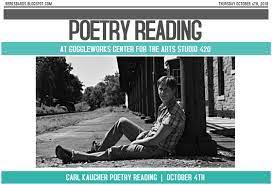
Kaucher at Amazon: https://www.amazon.com/Literature-Fiction-Carl-Kaucher-Books/s?rh=n%3A17%2Cp_27%3ACarl+Kaucher
Kaucher on Facebook: https://www.facebook.com/CarlKaucher/
Kaucher at North of Oxford:
Poems
https://northofoxford.wordpress.com/2018/05/15/2-poems-by-carl-kaucher/
https://northofoxford.wordpress.com/2021/12/08/two-poems-by-carl-kaucher/
Reviews:
https://northofoxford.wordpress.com/2018/10/01/sideways-blues-irish-mountain-beyond-by-carl-kaucher/
https://northofoxford.wordpress.com/2020/12/01/postpoemed-by-carl-kaucher/
g emil reutter can be found at: https://gereutter.wordpress.com/about/
.
.
.